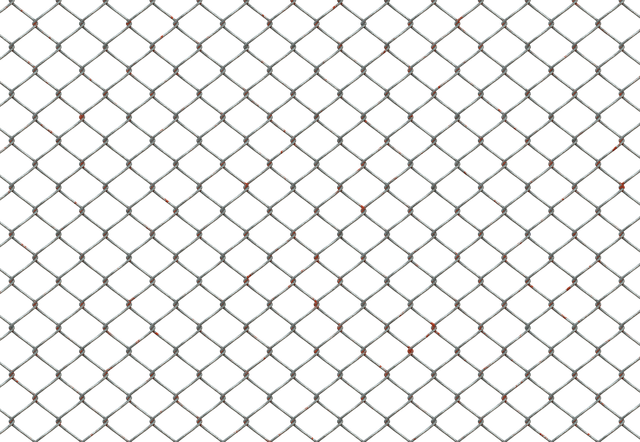In New Bedford, Massachusetts, where seasonal climate shifts can be dramatic, proper fence maintenance is essential to preserve your property’s investment. This comprehensive guide navigates the unique challenges of maintaining fences in this environment, offering tailored recommendations for cleaning, inspection, and repair throughout each season. From understanding the local climate’s impact on different materials like wood and vinyl to determining optimal power washing schedules and selecting durable protective coatings, these insights ensure your fence remains in top condition year-round.
- Understanding New Bedford's Climate for Fence Maintenance
- Regular Cleaning and Inspection: A Seasonal Guide
- Treating and Preventing Common Fence Issues
- Wood vs Vinyl: Seasonal Care Differences
- Power Washing: When and How Often?
- Protective Coating: Enhancing Durability Throughout Seasons
Understanding New Bedford's Climate for Fence Maintenance
New Bedford, Massachusetts experiences four distinct seasons, each with its unique weather patterns. Understanding this climate is crucial for effective fence maintenance throughout the year. The harsh winters can bring freezing temperatures and heavy snowfall, which can lead to damage if fences aren’t properly prepared. In contrast, hot summers are characterized by high humidity levels, making wood fences particularly susceptible to rot and decay. Fall brings a mix of warm days and cooler nights, while spring is when new growth begins, requiring regular cleaning and repairs to keep fences in top condition. By considering these seasonal variations, property owners can implement appropriate maintenance strategies to ensure their fences remain sturdy and aesthetically pleasing.
Regular Cleaning and Inspection: A Seasonal Guide
Regular cleaning and inspection are vital components of seasonal fence maintenance. In New Bedford, Massachusetts, where outdoor spaces thrive with diverse seasons, this routine becomes even more critical. During spring, as the weather warms up, it’s essential to remove any debris or snow accumulation that may have built up over winter. This initial step ensures that your fence is clear and ready for the upcoming growth season. Inspecting the fence at this time also allows you to identify any signs of damage, such as broken posts or rusted hardware, which can be addressed promptly.
As summer progresses, regular cleaning involves removing dust, dirt, and any algae or mold growth that might have developed. This is particularly important for wooden fences, as it helps prevent rot and maintains their aesthetic appeal. Fall offers an opportunity to deep clean and treat the fence, preparing it for the colder months ahead. An inspection during this season checks for loose connections, ensures proper drainage to avoid water damage, and addresses any issues before winter sets in.
Treating and Preventing Common Fence Issues
Treating and preventing common fence issues is an essential part of seasonal maintenance for New Bedford, Massachusetts property owners. One of the most frequent problems is rot, particularly in damp climates like this region’s. Regular cleaning and sealing can protect wood fences from moisture damage. It’s recommended to inspect the fence for any signs of decay or weak spots at least twice a year. Promptly addressing rotten sections with replacement or repair will prevent further deterioration and ensure structural integrity.
Another prevalent issue is weed growth, which can choke the base of the fence and cause instability. Regular weeding and applying protective coatings or paints designed to inhibit plant growth can keep fences looking neat and extend their lifespan. Additionally, checking and tightening any loose posts or rails during seasonal transitions ensures the fence remains secure against potential storms and heavy weather conditions typical of New Bedford’s seasons.
Wood vs Vinyl: Seasonal Care Differences
Wood and vinyl fences require distinct care routines, especially during the seasonal changes in New Bedford, Massachusetts. Wooden fences, a popular choice for their natural aesthetic, demand more attention throughout the year. In the spring, before new growth begins, power washing is essential to remove winter’s accumulation of dirt and salt. Regular sealing every few months will protect the wood from moisture and extreme temperatures, preserving its color and integrity.
Conversely, vinyl fences are low-maintenance alternatives known for their durability. While they don’t need frequent power washing, removing any debris or growth is crucial to maintain their appearance. Unlike wood, vinyl doesn’t require sealing, but it’s still vulnerable to sun damage over time, which can cause cracking. Regular inspection and repair can keep the fence in top condition, ensuring it withstands New Bedford’s seasonal shifts without significant deterioration.
Power Washing: When and How Often?
Power washing is an excellent way to deep clean and rejuvenate your fence, removing built-up dirt, mold, and mildew. However, it’s essential to time this process correctly to avoid potential damage. For New Bedford’s climate, it’s generally recommended to power wash in the spring or fall when temperatures are milder. Extreme heat can cause water to evaporate too quickly, leaving behind streaking, while freezing temperatures can lead to damage if the fence is not completely dry before winter sets in.
As for frequency, a good rule of thumb is to power wash your fence every 2-3 years, or more frequently if it’s situated near a heavily trafficked area or is made of a material prone to staining (like wood). Regular washing not only maintains the fence’s aesthetic appeal but also helps to preserve its structural integrity and longevity.
Protective Coating: Enhancing Durability Throughout Seasons
Protective coatings play a vital role in maintaining your fence’s durability, especially in New Bedford’s ever-changing seasons. These coatings create a barrier between the fence and environmental elements like rain, snow, and harsh sunlight, significantly extending its lifespan. During the warmer months, consider applying a water-repellent sealer to safeguard against moisture damage, which can weaken wood over time.
In colder seasons, when freezing temperatures and snow are common, an oil-based or polyurethane finish can provide excellent protection. These coatings not only prevent frost damage but also insulate the fence, minimizing expansion and contraction that could lead to warping. Regular reapplication of these protective layers is recommended, typically every 2-3 years, to ensure optimal fence condition throughout all seasons.
